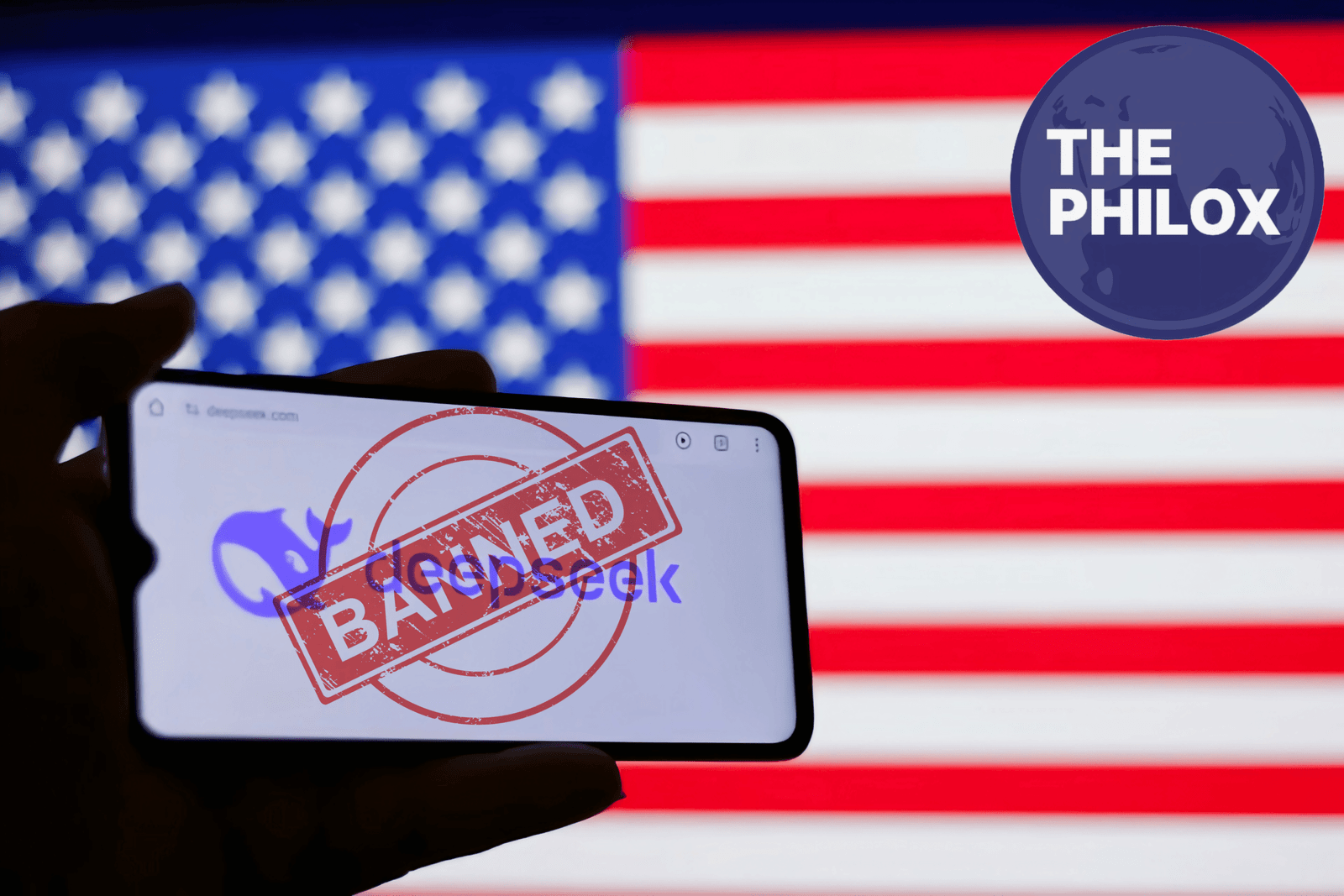
DeepSeek has evolved in the vast digital sphere, where artificial intelligence shapes reality and data constellations sparkle.
Starting from the furnace of Chinese invention, this artificial intelligence system blazing with promises of unparalleled efficiency, insight, and changing power runs beyond the technological horizon.
Though it draws attention to the digital sky, it also casts a shadow of fear that calls major questions for those who look after the American digital realm.
The fundamental issue of this emerging drama is simple. These channels of data run where? As artificial intelligence develops to be the core of modern economies, national security,
and society development, the presence of foreign artificial intelligence platforms in the U.S. ecosystem raises intense debate. Is DeepSeek a lighthouse of progress or a Trojan ship for geopolitical effect?
America’s Digital bastion: preserving Cyberfrontiers
For decades the United States has been a guardian over its digital rule, applying both technological competence and regulatory alertism.
From physical territory to cyberspace, where control over data and artificial intelligence technologies turns into economic, political, and strategic power, the limits of sovereignty have expanded.
Long seen as a two-edged blade, foreign technology offers vulnerabilities that might be used for surveillance, espionage, and digital subversion even as it brings advances that drive creation and competitiveness.
The U.S. has had a difficult time juggling openness to growth with national security concerns. Now at this unstable crossroads, DeepSeek stands for the lowest point of digital vulnerability as well as the height of artificial intelligence development.
The rivers of data: one eastward flow
DeepSeek’s argument revolves mostly on data flow, the digital age’s lifeblood. Especially large-scale models like DeepSeek, artificial intelligence systems thrive on massive information allowing them to learn, develop, and increase their capabilities.
Still, the opaque data governance of DeepSeek raises questions. While its algorithms provide modern capability, where does the acquired data stop?
Whether this massive data flow—possibly including sensitive user interactions, behavioral patterns, and strategic insights—finds its way back to China, a country where governmental influence over private firms is well-documented—becomes ever more of worry.
Unlike more privacy-oriented laws in the West, China’s strict cybersecurity regulations compel companies to give data to the government upon demand.
This discrepancy in data protection ideas fuels concerns that DeepSeek may be used as a portal for intelligence gathering, so subtly modifying narratives or maybe even altering American social dynamics.
Digital Age Sovereignty: An Other Ground Zero
Twenty-first century sovereignty transcends simple physical limits. It enters cyberspace, where geopolic authority coincides with artificial intelligence algorithms and control of digital infrastructure flows.
Data is not merely numbers and text; it is the currency of influence able to sway public opinion, influence elections, even shape national cultural mentality. Unprecedented effect of AI-powered platforms drives foreign-owned AI to become a strategic concern for any country.
The existence of DeepSeek in the United States raises major questions:
1. Can an artificial intelligence platform under Chinese control be really impartial in a world driven by geopolitical rivalry?
2. What happens if recommendations or insights produced by artificial intelligence silently support the goals of a foreign power?
3. How can the US preserve its digital sovereignty while simultaneously leading in artificial intelligence innovation?
Either a weapon for progress or a threat to autonomy, the Double-Edged Sword of AI
Like a blade made in the furnace of human invention, artificial intelligence sacrifices privacy, autonomy, and security on one side while simultaneously generating unparalleled efficiency from another side slicing through the complexity of data.
DeepSeek catches this puzzle. Its systems could revolutionize industries, simplify procedures, and raise general decision-making quality. Still, it’s unknown how much these advances compromise personal privacy and national security concurrently.
The most crucial question is whether artificial intelligence research can remain internationally linked or if the world is fast toward a fractured digital landscape, where every nation builds their own AI ecosystems, separated from outside influences.
Shadow of the Past: TikHub Mirror
History offers a quite strong precedence. Another Chinese-developed platform, TikHub, followed a similar route: becoming quickly popular only to get caught in regulatory investigation over data security and national impact issues. Faced worries about American user data being utilized by the Chinese government, the U.S. authorities argued about banning the app.
Although TikHub is still under operation, its future is currently unknown. Its experience points to a more broader trend of skepticism regarding Chinese IT companies—one DeepSeek now finds itself ensnared in.
Divided Nation: Development vs. Protection
DeepSeek’s arrival in the US has sparked a strong case argument. Tech innovators honor it as a symbol of progress ready to use its powers for trade, study, and problem-solving. National security experts warn about the possible risks of introducing a foreign artificial intelligence system into critical industries.
This division catches a more general question: how can a nation balance the necessity to protect its digital integrity with unrestricted technological growth?
While some lawmakers advocate isolationist policies that stifle innovation and limit America’s capacity to compete in the global AI race, others call for strict laws or outright ban on AI systems from hostile nations.
Global Ripples: Broken Digital World?
The American response to DeepSeek has significant effects on the global arena of artificial intelligence.
Should America choose to restrict or outlaw its operations, other nations may follow suit and establish own sovereign artificial intelligence models together with digital firewalls.
This trend might speed the development of a balkanized internet, in which digital platforms and artificial intelligence become nationalized assets running inside well defended cyber borders.
While this would enhance data security, it could also impede cross-border cooperation and innovation, therefore limiting the progress of artificial intelligence generally.
Conversely, the situation could inspire indigenous artificial intelligence technology to grow by driving nations to support self-reliant AI ecosystems and so reduce reliance on models produced abroad.
The battleground user represents the human element.
Between these geopolitical chess pieces is the personal user—the millions of people that everyday interact with artificial intelligence.
For many purposes including productivity, learning, and creativity, DeepSeek is an excellent tool. Still, the very tools supposed to help them also provide pathways for possible exploitation.
Consumers are caught in a digital geopolitical network whereby their personal data becomes a pawn in the high-stakes game of technical superiority.
Should people be allowed to choose artificial intelligence platforms, or does the government have an obligation to manage such risks?
The Mount of Digital Confidence
As it considers the fate of DeepSeek, the United States has to take significant existential issues into account: will nations be driven into technological isolation by mistrust and protectionism or will cooperation and mutual advancement define artificial intelligence?
The DeepSeek argument highlights how urgently global discussion on artificial intelligence governance—one that guarantees innovation—does not sacrifice privacy and sovereignty.
The choices made now will decide whether this event represents the start of a new era of artificial intelligence cooperation or a divided digital environment.
One truth is clear at the edge of this digital frontier: artificial intelligence cannot be built without trust.
Stay Connected and Share Your Stories
For all those inspired by stories of resilience and ambition, follow us on X/Twitter and on Instagram . For those with untold stories that you would love to share, please send them to contact@thephilox.com








